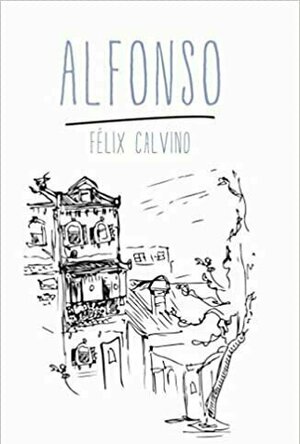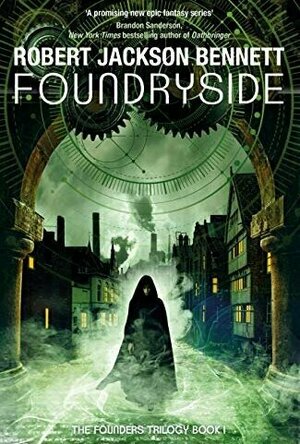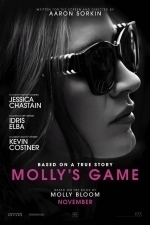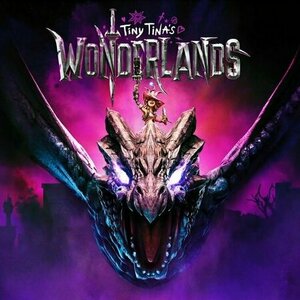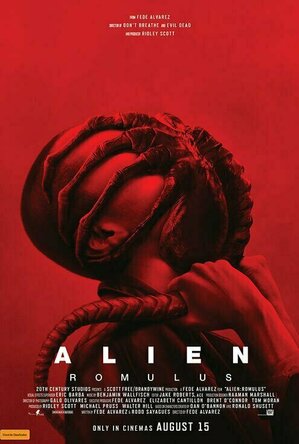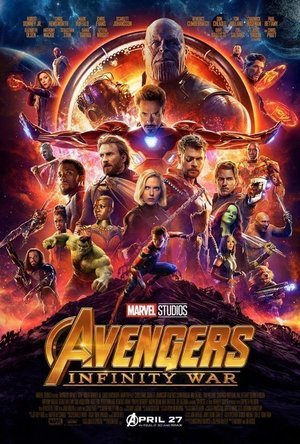Search
Search results

Dress Designer Fashion Studio - Tailor Boutique
Lifestyle and Games
App
*** For true fashion enthusiasts and trend-setters! *** Create the most amazing dress designs that...

Strip Designer
Photo & Video and Lifestyle
App
Make your photos come to live and tell a story you can share with friends and family. With Strip...
Ivana A. | Diary of Difference (1171 KP) rated Alfonso in Books
Aug 3, 2020
<a href="https://amzn.to/2Wi7amb">Wishlist</a>; | <a
<a href="https://diaryofdifference.com/">Blog</a>; | <a href="https://www.facebook.com/diaryofdifference/">Facebook</a>; | <a href="https://twitter.com/DiaryDifference">Twitter</a>; | <a href="https://www.instagram.com/diaryofdifference/">Instagram</a>; | <a href="https://www.pinterest.co.uk/diaryofdifference/pins/">Pinterest</a>;
<img src="https://i0.wp.com/diaryofdifference.com/wp-content/uploads/2020/04/Book-Review-Banner-35.png?w=663&ssl=1"/>;
Alfonso is a young man that has moved to Australia to find a better life. Through his story, we follow his feelings and search for purpose.
As a person that moved to another country to find a better life, I can understand Alfonso and I can relate to what he feels and thinks. Coming into another country can be extremely difficult, leaving your family and friends behind, knowing those relationships will never be the same again. Coming to terms with the fact that you will always be a foreigner and have trouble with people accepting you. Trying to make friends and get inside inner circles of people that have been together since high-school – yeah, good luck with that…
Given how I can relate to Alfonso’s situation, and the similarities I have with this character, I thought I would love this book. But I didn’t. Even though I could relate with him, I couldn’t agree with his perceptions and beliefs. Alfonso was always trying to find a girl to spend his life with. Which is normal and expected. However, instead of being his true and authentic self, he desperately tries to be as “less foreign” as possible and adapt to his audience. This is something that seemed to push the potential women away. Not to mention that he was being quite creepy at times (following a girl’s bus schedule and being there before she departs etc.)
Living in a new environment shouldn’t mean that people should stop being who they are and stop believing in what they do, or respecting and practicing the customs from the country they were born and raised from.
All my friends know that in my country we boil and colour actual eggs for Easter, rather than eat chocolate ones. In our home, me and my boyfriend celebrate two Christmases; one on the 25th December, where he does everything by his tradition, and one on 7th January, where I prepare everything in my tradition. And it works. And it’s double the fun and jolly spirit.
I couldn’t relate with the fact that Alfonso feels that he needs to change and adapt, and leave behind his culture. I also couldn’t comprehend the fact that he needs to have a woman to be happy. He couldn’t seem to find happiness with just himself. And maybe, this is again, part of the tradition. In my country, marriages and forming a family are very important, and this may have influenced Alfonso’s behaviour perhaps.
The most upsetting part about this book was that the book ended, and everything remained the same. No earnings, no character development, no closure. Just a bad vibe of negativity, that was lingering in the air and stayed with me for days, like a bad taste in my mouth that you cannot wash with brushing your teeth.
I am not sure how to properly rate “Alfonso”. It was relatable, but conflicting. Very understandable, but unsatisfactory. And I will be honest, I read books that will either make me feel good, or teach me something new (or both), but this book didn’t provide either…
<a href="https://amzn.to/2Wi7amb">Wishlist</a>; | <a
<a href="https://diaryofdifference.com/">Blog</a>; | <a href="https://www.facebook.com/diaryofdifference/">Facebook</a>; | <a href="https://twitter.com/DiaryDifference">Twitter</a>; | <a href="https://www.instagram.com/diaryofdifference/">Instagram</a>; | <a href="https://www.pinterest.co.uk/diaryofdifference/pins/">Pinterest</a>;
<a href="https://diaryofdifference.com/">Blog</a>; | <a href="https://www.facebook.com/diaryofdifference/">Facebook</a>; | <a href="https://twitter.com/DiaryDifference">Twitter</a>; | <a href="https://www.instagram.com/diaryofdifference/">Instagram</a>; | <a href="https://www.pinterest.co.uk/diaryofdifference/pins/">Pinterest</a>;
<img src="https://i0.wp.com/diaryofdifference.com/wp-content/uploads/2020/04/Book-Review-Banner-35.png?w=663&ssl=1"/>;
Alfonso is a young man that has moved to Australia to find a better life. Through his story, we follow his feelings and search for purpose.
As a person that moved to another country to find a better life, I can understand Alfonso and I can relate to what he feels and thinks. Coming into another country can be extremely difficult, leaving your family and friends behind, knowing those relationships will never be the same again. Coming to terms with the fact that you will always be a foreigner and have trouble with people accepting you. Trying to make friends and get inside inner circles of people that have been together since high-school – yeah, good luck with that…
Given how I can relate to Alfonso’s situation, and the similarities I have with this character, I thought I would love this book. But I didn’t. Even though I could relate with him, I couldn’t agree with his perceptions and beliefs. Alfonso was always trying to find a girl to spend his life with. Which is normal and expected. However, instead of being his true and authentic self, he desperately tries to be as “less foreign” as possible and adapt to his audience. This is something that seemed to push the potential women away. Not to mention that he was being quite creepy at times (following a girl’s bus schedule and being there before she departs etc.)
Living in a new environment shouldn’t mean that people should stop being who they are and stop believing in what they do, or respecting and practicing the customs from the country they were born and raised from.
All my friends know that in my country we boil and colour actual eggs for Easter, rather than eat chocolate ones. In our home, me and my boyfriend celebrate two Christmases; one on the 25th December, where he does everything by his tradition, and one on 7th January, where I prepare everything in my tradition. And it works. And it’s double the fun and jolly spirit.
I couldn’t relate with the fact that Alfonso feels that he needs to change and adapt, and leave behind his culture. I also couldn’t comprehend the fact that he needs to have a woman to be happy. He couldn’t seem to find happiness with just himself. And maybe, this is again, part of the tradition. In my country, marriages and forming a family are very important, and this may have influenced Alfonso’s behaviour perhaps.
The most upsetting part about this book was that the book ended, and everything remained the same. No earnings, no character development, no closure. Just a bad vibe of negativity, that was lingering in the air and stayed with me for days, like a bad taste in my mouth that you cannot wash with brushing your teeth.
I am not sure how to properly rate “Alfonso”. It was relatable, but conflicting. Very understandable, but unsatisfactory. And I will be honest, I read books that will either make me feel good, or teach me something new (or both), but this book didn’t provide either…
<a href="https://amzn.to/2Wi7amb">Wishlist</a>; | <a
<a href="https://diaryofdifference.com/">Blog</a>; | <a href="https://www.facebook.com/diaryofdifference/">Facebook</a>; | <a href="https://twitter.com/DiaryDifference">Twitter</a>; | <a href="https://www.instagram.com/diaryofdifference/">Instagram</a>; | <a href="https://www.pinterest.co.uk/diaryofdifference/pins/">Pinterest</a>;
Ross (3284 KP) rated Foundryside in Books
Aug 31, 2020
Great world-building, good story
The world the author has created is very impressive. I hate to do it, but the magic system is very Brandon Sanderson-esque. Over time, symbols used by ancient civilisations to make contraptions and control objects have been deciphered and are now used in everyday life. Self-driven carts, guns, machinery: all are controlled by this clever magic system, but there is a feeling this is just the tip of the iceberg. The city of Tevanne is controlled by a council of the main merchant families, and each of those families is striving for the next big innovation in the use of these symbols. And with any major corporate hierarchy, there is a black market: a set of individuals striving to make things more cost effective, though of lower quality than the merchant houses.
Sancia is a key customer for some of this black market. She is a mercenary who will, for a fee, steal things. Not much of Sancia's past work is given, whether she is just a thief for hire, or has killed. She is a good strong, complicated character. Sancia has the ability to sense the thoughts of inanimate objects. For example, she can touch a wall and find out where the wall joins to other walls, whether there are gaps, whether someone is leaning on the other side, etc. This comes in handy when she successfully steals a box from a storage facility that contains a magical key that she can speak to.
There then follows a gripping plot to dethrone the merchant houses by seeking to stop them achieving more than just market share.
As with all the best fantasy worlds, the nature of things is revealed gradually over the course of the book. At times this verges on deus ex machina, but never quite goes over that line, things being mostly plausible given what we already know.
The dialogue of the book is where I have most of my issues with it. As with a number of recent books, the author is clearly an American and puts a number of Americanisms into the prose. While I am no language snob and can happily accept these in general, it is harder to do so in a fantasy book, especially one where other aspects of the language are clearly supposed to be more British English. The combination of a character saying "you all" or "most always" or "goddamn" and then using the word "arse" rather than "ass" just really ground my gears. It would have been much better to have been consistent and stick with "ass" and closer to the author's true voice.
Additionally, as with a number of fantasy books, new swear words are invented. These are partly explained and linked to the world, but it just comes across as a means of swearing without saying the actual "f" word. The word "scrumming" is far too twee a word to convey the same emotion as the word it is trying to replace and takes me right out of the book.
The pacing of the book was mostly fine, a few times it did seem to grind to a halt or there were long chapters of gradual exposition, but the action sequences, of which there were plenty, were thrilling and well told.
Overall, I did really enjoy this book, but the language used at times took me out of it and spoilt the mood a little. I can always tell how much I am enjoying a book by how quickly I read it and the number of comics I read simultaneously. My comic reading did go up a notch while reading this book.
Sancia is a key customer for some of this black market. She is a mercenary who will, for a fee, steal things. Not much of Sancia's past work is given, whether she is just a thief for hire, or has killed. She is a good strong, complicated character. Sancia has the ability to sense the thoughts of inanimate objects. For example, she can touch a wall and find out where the wall joins to other walls, whether there are gaps, whether someone is leaning on the other side, etc. This comes in handy when she successfully steals a box from a storage facility that contains a magical key that she can speak to.
There then follows a gripping plot to dethrone the merchant houses by seeking to stop them achieving more than just market share.
As with all the best fantasy worlds, the nature of things is revealed gradually over the course of the book. At times this verges on deus ex machina, but never quite goes over that line, things being mostly plausible given what we already know.
The dialogue of the book is where I have most of my issues with it. As with a number of recent books, the author is clearly an American and puts a number of Americanisms into the prose. While I am no language snob and can happily accept these in general, it is harder to do so in a fantasy book, especially one where other aspects of the language are clearly supposed to be more British English. The combination of a character saying "you all" or "most always" or "goddamn" and then using the word "arse" rather than "ass" just really ground my gears. It would have been much better to have been consistent and stick with "ass" and closer to the author's true voice.
Additionally, as with a number of fantasy books, new swear words are invented. These are partly explained and linked to the world, but it just comes across as a means of swearing without saying the actual "f" word. The word "scrumming" is far too twee a word to convey the same emotion as the word it is trying to replace and takes me right out of the book.
The pacing of the book was mostly fine, a few times it did seem to grind to a halt or there were long chapters of gradual exposition, but the action sequences, of which there were plenty, were thrilling and well told.
Overall, I did really enjoy this book, but the language used at times took me out of it and spoilt the mood a little. I can always tell how much I am enjoying a book by how quickly I read it and the number of comics I read simultaneously. My comic reading did go up a notch while reading this book.
Emma @ The Movies (1786 KP) rated Fantasy Island (2020) in Movies
May 5, 2020
Michael Peña and Maggie Q in a film... I'm in. This was high up my watchlist even though Blumhouse and I don't always see eye to eye.
A group of strangers arrive on an island, this experience will give them their deepest desires. Wish for it and you can live it, all you have to do is see it through to the end on Fantasy Island.
Evidently, Nic Cage turned down the role of Mr Roarke... I didn't know that he turned down any roles so that (if true) should have been a massive warning sign.
I do have to wonder how some of these stories come about. This is based on the 70's TV show of the same name which was entirely not scary as far as I know. Is there a giant bingo cage full of ping pong balls inscribed with names of old shows and films? Do they just let studios try their luck to spin whatever they get to their niche?
Twisting this tale is a pretty good idea, though I'm not really sure why an island would want to do that to people, but what do I know about malevolent black goop spirits? I was generally on board with the storyline and I thought it wove them together quite well but that ending... are you kidding me? There was some speculation thrown out about what was going on and that thread was believable. The one they gave us was laughable, the absolute worst choice. Had they done a small reshuffle they could have given a much less ridiculous conclusion.
There are a lot of different threads and each one has its moments, as daft as they might be they come together quite well even when the filler is poor.
Maggie Q's performance as Gwen felt like the most believable out of the whole ensemble, but that's not really a surprise from her. Gwen is basically the only decent person in the group and throughout her stay she is the one that's grounded and tries to deal with her situation. That should give us something good to work off... but she's kind of bland on screen compared to everything else.
Michael Peña is always a pull to a movie for me, but Roarke's story wasn't all the effective. Had he been a construct of the island then there might have been something in it, but as it was you didn't get any real struggle with his actions, I couldn't see how a character that wasn't portrayed as actively evil could go along with any of it even given his background.
While the rest of the cast is filled with faces you'd know there isn't really a great performance to be seen. From unlikeable characters to a script that's not amusing when it tries to be, what's left of the film is plain in a glossy kind of way, and by that I mean it's got the makings of something good but misses anything that could have made an impact. The effects are fine for the most part and the sets are fine when you take into consideration they're supposed to be a fantasy and don't need to fit together perfectly. The exception is Roarke's door that Maggie Q interacts with, I liked that move and I don't know whether the rest of the film might have benefitted from something similar.
Bits of the film are quite good and could have made for an exciting watch, but that ending was so frustrating that any enjoyment went straight out the window and any thrill from what I'd already seen was gone. Also, considering it is classified as horror there wasn't really enough, or anything of quality, too make that a reality. Untapped potential in abundance here.
Originally posted on: https://emmaatthemovies.blogspot.com/2020/05/fantasy-island-movie-review.html
A group of strangers arrive on an island, this experience will give them their deepest desires. Wish for it and you can live it, all you have to do is see it through to the end on Fantasy Island.
Evidently, Nic Cage turned down the role of Mr Roarke... I didn't know that he turned down any roles so that (if true) should have been a massive warning sign.
I do have to wonder how some of these stories come about. This is based on the 70's TV show of the same name which was entirely not scary as far as I know. Is there a giant bingo cage full of ping pong balls inscribed with names of old shows and films? Do they just let studios try their luck to spin whatever they get to their niche?
Twisting this tale is a pretty good idea, though I'm not really sure why an island would want to do that to people, but what do I know about malevolent black goop spirits? I was generally on board with the storyline and I thought it wove them together quite well but that ending... are you kidding me? There was some speculation thrown out about what was going on and that thread was believable. The one they gave us was laughable, the absolute worst choice. Had they done a small reshuffle they could have given a much less ridiculous conclusion.
There are a lot of different threads and each one has its moments, as daft as they might be they come together quite well even when the filler is poor.
Maggie Q's performance as Gwen felt like the most believable out of the whole ensemble, but that's not really a surprise from her. Gwen is basically the only decent person in the group and throughout her stay she is the one that's grounded and tries to deal with her situation. That should give us something good to work off... but she's kind of bland on screen compared to everything else.
Michael Peña is always a pull to a movie for me, but Roarke's story wasn't all the effective. Had he been a construct of the island then there might have been something in it, but as it was you didn't get any real struggle with his actions, I couldn't see how a character that wasn't portrayed as actively evil could go along with any of it even given his background.
While the rest of the cast is filled with faces you'd know there isn't really a great performance to be seen. From unlikeable characters to a script that's not amusing when it tries to be, what's left of the film is plain in a glossy kind of way, and by that I mean it's got the makings of something good but misses anything that could have made an impact. The effects are fine for the most part and the sets are fine when you take into consideration they're supposed to be a fantasy and don't need to fit together perfectly. The exception is Roarke's door that Maggie Q interacts with, I liked that move and I don't know whether the rest of the film might have benefitted from something similar.
Bits of the film are quite good and could have made for an exciting watch, but that ending was so frustrating that any enjoyment went straight out the window and any thrill from what I'd already seen was gone. Also, considering it is classified as horror there wasn't really enough, or anything of quality, too make that a reality. Untapped potential in abundance here.
Originally posted on: https://emmaatthemovies.blogspot.com/2020/05/fantasy-island-movie-review.html

Virtual Families 2: Our Dream House
Games and Entertainment
App
*Now Downloaded 11 Million Times!! Well played, people!* *Whoa! You made us #1 in Simulation!...
Bob Mann (459 KP) rated Molly's Game (2017) in Movies
Sep 29, 2021
Wordy but entertaining.
You can never accuse Aaron Sorkin of skimping on his words. Sorkin is of course the award-winning writer of “The West Wing” but on the big screen he has also written many classics: “A Few Good Men”; “The Social Network” and “Steve Jobs” for example. Here he also makes his directorial debut in a movie about the true-life turbulent career of Olympic wannabe skier Molly Bloom.
Bloom is played by Jessica Chastain, from films such as “Zero Dark Thirty” and “Miss Sloane” (one of my films of the year last year). Chastain’s roles as an actress are often quite cold and calculating, as suits her demeanour. As such her characters are not often easy to warm to in movies (and as such, my wife is not a fan).
Taking the piste. Molly in her younger ski-centric role.
Here as Molly Bloom she is as equally driven as in “Miss Sloane“, but the drive is learned from her father (Kevin Costner), bullying her to be the best she can be at skiing in a highly competitive family. Forced out of the skiing business (for reasons I won’t spoil), she takes a “gap year” from law school that turns into a “gap life” after she falls into the slightly shady business of running poker nights for LA’s rich elite. It’s here that Chastain’s Bloom is able to show a gentler and more compassionate side, trying to talk some of her clients (who invariably fall in love with her) off the ledge of their gambling addiction.
Chris O’Dowd as one of the punter’s in deep.
Sorkin’s script (based on Molly’s own autobiography, I should add) does a really nice job of cutting backwards and forwards through Molly’s timeline to drill into motivations and her mental state, and in doing so he pulls out an award-winning (or at least Golden-Globe award-nominating) performance from Chastain in the process. Also very effective though is Kevin Costner (“Hidden Figures“, “Man of Steel“), who is quietly building an impressive portfolio of supporting actor roles. Here he rather dials in his “tough and aloof guy” performance until the park bench scene (below) where he surprises in a good way.
Benches with wolves. Kevin Costner impressive as Molly’s hard-line father.
It’s also a blessed relief to find a decent vehicle to showcase the undoubted talents of Britain’s Idris Elba – an actor who has been woefully served by rubbish such as “Bastille Day“, rather lame sequels like “Star Trek: Beyond” or minor roles such as in “Thor: Ragnarok“. Here he can really get his teeth into the role of Molly’s lawyer, with a multi-layered character that reveals a little – but not too much of – his back-story to leave you with intriguing questions.
An indecisive Charlie Jaffey (Idris Elba) can make his mind up about Molly (Jessica Chastain).
So it’s a good film, but an intelligent watch that mandates your attention. The script is sufficiently dense and wordy that it requires significant concentration: this is not a “park your brain at the door” type of ‘Michael Bay film’. (As such, while it remains a recommended watch, I’m not sure it would be one that would necessarily make my DVD list for repeat watchings).
Michael Cera (centre) as the mysterious but powerful “Player X”; a Hollywood actor, but who is he supposed to be? (Answers on a postcard!).
But again, I must comment on what an amazing year this is turning out to be for women in film. Less #Me-too and more #She-do! Once again, here is a movie where a confident woman is firmly in the driving seat, and while powerful men try to bring her down, it is not them that succeeds. (The studio bill for talent in the past year must be a LOT less than it was the year before! #don’tshootme #topicalhumour #CarrieGracey). #TimesUp.
Bloom is played by Jessica Chastain, from films such as “Zero Dark Thirty” and “Miss Sloane” (one of my films of the year last year). Chastain’s roles as an actress are often quite cold and calculating, as suits her demeanour. As such her characters are not often easy to warm to in movies (and as such, my wife is not a fan).
Taking the piste. Molly in her younger ski-centric role.
Here as Molly Bloom she is as equally driven as in “Miss Sloane“, but the drive is learned from her father (Kevin Costner), bullying her to be the best she can be at skiing in a highly competitive family. Forced out of the skiing business (for reasons I won’t spoil), she takes a “gap year” from law school that turns into a “gap life” after she falls into the slightly shady business of running poker nights for LA’s rich elite. It’s here that Chastain’s Bloom is able to show a gentler and more compassionate side, trying to talk some of her clients (who invariably fall in love with her) off the ledge of their gambling addiction.
Chris O’Dowd as one of the punter’s in deep.
Sorkin’s script (based on Molly’s own autobiography, I should add) does a really nice job of cutting backwards and forwards through Molly’s timeline to drill into motivations and her mental state, and in doing so he pulls out an award-winning (or at least Golden-Globe award-nominating) performance from Chastain in the process. Also very effective though is Kevin Costner (“Hidden Figures“, “Man of Steel“), who is quietly building an impressive portfolio of supporting actor roles. Here he rather dials in his “tough and aloof guy” performance until the park bench scene (below) where he surprises in a good way.
Benches with wolves. Kevin Costner impressive as Molly’s hard-line father.
It’s also a blessed relief to find a decent vehicle to showcase the undoubted talents of Britain’s Idris Elba – an actor who has been woefully served by rubbish such as “Bastille Day“, rather lame sequels like “Star Trek: Beyond” or minor roles such as in “Thor: Ragnarok“. Here he can really get his teeth into the role of Molly’s lawyer, with a multi-layered character that reveals a little – but not too much of – his back-story to leave you with intriguing questions.
An indecisive Charlie Jaffey (Idris Elba) can make his mind up about Molly (Jessica Chastain).
So it’s a good film, but an intelligent watch that mandates your attention. The script is sufficiently dense and wordy that it requires significant concentration: this is not a “park your brain at the door” type of ‘Michael Bay film’. (As such, while it remains a recommended watch, I’m not sure it would be one that would necessarily make my DVD list for repeat watchings).
Michael Cera (centre) as the mysterious but powerful “Player X”; a Hollywood actor, but who is he supposed to be? (Answers on a postcard!).
But again, I must comment on what an amazing year this is turning out to be for women in film. Less #Me-too and more #She-do! Once again, here is a movie where a confident woman is firmly in the driving seat, and while powerful men try to bring her down, it is not them that succeeds. (The studio bill for talent in the past year must be a LOT less than it was the year before! #don’tshootme #topicalhumour #CarrieGracey). #TimesUp.
Gareth von Kallenbach (980 KP) rated the PC version of Tiny Tina's Wonderlands in Video Games
Apr 10, 2022
Tiny Tina’s Wonderlands Is A Hysterical Mayhem Filled Adventure Not To Be Missed
The quirky and more than slightly unstable Tiny Tina from the Borderlands series is back and the new Borderlands Spin-Off Tiny Tina’s Wonderlands is a hysterical and engaging adventure that is one of the finest outings in the series to date.
Fans may remember the Borderlands 2 DLC Assault on Dragons Keep where Tina and friends played an RPG called Bunkers and Badasses which cast players to take on mythical quests from her neurotic mind and the stand-alone version of the DLC was released prior to the game to bring players up to speed although it is not required to have played it.
Players create a character known as the “Fatemaker” and pick various classes, skills, and attributes which they can update and modify along the way as their characters gain experience and all sorts of timed abilities come into play which will greatly help the players along the way as a well-timed spell can mean the difference between failure and victory.
The gameplay will be familiar to Borderlands fans and characters will have countless weapons, shields, upgrade charms, and more available to them deciding which ones come along, get used, get sold, or left behind is always one of the harder parts of the game. Some may find a weapon that does lower damage but has a high rate of fire better than a weapon that does more damage but has a slow reload time and a smaller ammunition clip. The best bet is to find a mix of weapons through trial and error as players can always sell items that do not make the cut.
The game offers a clever overhead perspective at times when players navigate the map versus using the Quick Travel options and this allows players to take on side quests, explore areas and more to gain experience and items should the desired quest area prove too difficult for their current ability level.
The missions are filled with plenty of humor and challenges and the vast number of enemies is amazing. From a dried-up ocean complete with crabs, walking sharks, and Serpent creatures to Pirates, Skeletons, dragons, and more, this game has something for everyone and RPG fans will love the various dice encounters and challenges that arise.
As with Borderlands games, players who fall in battle have a chance to revive by defeating an enemy before a timer runs out or by paying a fee and being revived at various checkpoints.
The game was released a few days before we went on vacation and to cover a convention so I did find myself at times avoiding side quests to complete the main story missions and I look forward to trying them in the future with my enhanced arsenal and abilities.
The voice-cast in-game is very strong as are the graphics and audio which really makes the game a true joy from start to finish. My only real issue with the game was at times when I needed help, matchmaking often set me in an area I had already completed as it looked to match me with a player of a similar skill level vs my spot in the game.
I had to resolve this by going on forums and threads and asking for help but thankfully members of the community were happy to add me and join me in the game when needed. I also had the option to set my preference to wanting help but I did not have much success in this area.
The game will have future DLC and with the limitless potential of the premise, it is safe to say that fans will have plenty of adventures ahead as Tiny Tina’s Wonderlands is a hysterical and mayhem-filled romp not to be missed.
4.5 stars out of 5
The quirky and more than slightly unstable Tiny Tina from the Borderlands series is back and the new Borderlands Spin-Off Tiny Tina’s Wonderlands is a hysterical and engaging adventure that is one of the finest outings in the series to date.
Fans may remember the Borderlands 2 DLC Assault on Dragons Keep where Tina and friends played an RPG called Bunkers and Badasses which cast players to take on mythical quests from her neurotic mind and the stand-alone version of the DLC was released prior to the game to bring players up to speed although it is not required to have played it.
Players create a character known as the “Fatemaker” and pick various classes, skills, and attributes which they can update and modify along the way as their characters gain experience and all sorts of timed abilities come into play which will greatly help the players along the way as a well-timed spell can mean the difference between failure and victory.
The gameplay will be familiar to Borderlands fans and characters will have countless weapons, shields, upgrade charms, and more available to them deciding which ones come along, get used, get sold, or left behind is always one of the harder parts of the game. Some may find a weapon that does lower damage but has a high rate of fire better than a weapon that does more damage but has a slow reload time and a smaller ammunition clip. The best bet is to find a mix of weapons through trial and error as players can always sell items that do not make the cut.
The game offers a clever overhead perspective at times when players navigate the map versus using the Quick Travel options and this allows players to take on side quests, explore areas and more to gain experience and items should the desired quest area prove too difficult for their current ability level.
The missions are filled with plenty of humor and challenges and the vast number of enemies is amazing. From a dried-up ocean complete with crabs, walking sharks, and Serpent creatures to Pirates, Skeletons, dragons, and more, this game has something for everyone and RPG fans will love the various dice encounters and challenges that arise.
As with Borderlands games, players who fall in battle have a chance to revive by defeating an enemy before a timer runs out or by paying a fee and being revived at various checkpoints.
The game was released a few days before we went on vacation and to cover a convention so I did find myself at times avoiding side quests to complete the main story missions and I look forward to trying them in the future with my enhanced arsenal and abilities.
The voice-cast in-game is very strong as are the graphics and audio which really makes the game a true joy from start to finish. My only real issue with the game was at times when I needed help, matchmaking often set me in an area I had already completed as it looked to match me with a player of a similar skill level vs my spot in the game.
I had to resolve this by going on forums and threads and asking for help but thankfully members of the community were happy to add me and join me in the game when needed. I also had the option to set my preference to wanting help but I did not have much success in this area.
The game will have future DLC and with the limitless potential of the premise, it is safe to say that fans will have plenty of adventures ahead as Tiny Tina’s Wonderlands is a hysterical and mayhem-filled romp not to be missed.
4.5 stars out of 5
Gareth von Kallenbach (980 KP) rated Alien: Romulus (2024) in Movies
Sep 2, 2024
The latest film in the “Alien” franchise has arrived and “Alien: Romulus” is the most engaging and enjoyable entry in the series since “Aliens”.
The film is the first in the series since Disney purchased Twentieth Century Fox and they turned to Director and Co-writer Fede Alvarez to develop a story he had shared with Producer Ridley Scott years prior.
The movie was originally intended to debut on Hulu similar to how “Prey” was released but it was decided to go with a theatrical release early in production.
Cailee Spaeny stars as Rain; an orphan living on a dark planet with her Android “Brother” Andy (David Jonsson). The mining colony is filled with despair and disease from the mine and Rain is eager to immigrate to a colony that offers the sun and a better life having completed the terms of her service agreement with the Company.
Her request is denied and she is told that due to a labor shortage, she has to work five years in the mines before she is eligible to be considered again. Knowing the Mines are for many deaths waiting to happen, Rain is asked by a group of friends to join them for a mission.
Her friends pilot a hauler used to ferry cargo and say that they have found an object drifting through the system which will crash into their planetary rings in about 47 hours. They plot to go up and salvage some Cryopods which will enable them to head to the desired colony which is a nine-year journey.
Without options and knowing that Andy is the key to gaining access, the group enters the station and sets about their tasks.
Unfortunately, their actions rouse the dark and deadly secret of the station and they soon find themselves facing deadly Aliens in a tense and pitched fight for survival and escape.
The movie does a very good job at filling in areas of the overall mythos and delivering fan service which does not feel like pandering and also helps create a pathway for new stories that do not directly impact the film “Aliens” which is set 37 years after the events of this film.
The movie also connects to the Prequel films as well as the original “Alien” in some clever ways which helps the continuity but still leaves plenty of mystery and questions even when this one fills in a few of the gray areas slightly.
The movie takes its time to set up the premise and get to the action but it never drags and is engaging from start to finish. Alvarez has done a masterful job capturing not only the look of the earlier films but also creating an intense thriller that gives audiences what they want and more as use of physical effects was very effective.
The cast was strong and Spaeny and Jonsson have a great chemistry with one another which helps in the face of the growing danger and tensions in the film.
I found myself not only loving the nostalgic touches but also the way that elements of the Company are explained and how much they truly knew which adds new dimensions to the first two films in the series but raises all sorts of possibilities for future films in the series.
“Alien: Romulus” was a true joy from start to finish for me and as a fan who has enjoyed the franchise since I was a small child; it delivered what I wanted and for me was the most enjoyable and satisfying entry in the series since “Aliens” and Alvarez and the cast are to be commended for creating a film that invigorates the franchise and delivers.
The film is the first in the series since Disney purchased Twentieth Century Fox and they turned to Director and Co-writer Fede Alvarez to develop a story he had shared with Producer Ridley Scott years prior.
The movie was originally intended to debut on Hulu similar to how “Prey” was released but it was decided to go with a theatrical release early in production.
Cailee Spaeny stars as Rain; an orphan living on a dark planet with her Android “Brother” Andy (David Jonsson). The mining colony is filled with despair and disease from the mine and Rain is eager to immigrate to a colony that offers the sun and a better life having completed the terms of her service agreement with the Company.
Her request is denied and she is told that due to a labor shortage, she has to work five years in the mines before she is eligible to be considered again. Knowing the Mines are for many deaths waiting to happen, Rain is asked by a group of friends to join them for a mission.
Her friends pilot a hauler used to ferry cargo and say that they have found an object drifting through the system which will crash into their planetary rings in about 47 hours. They plot to go up and salvage some Cryopods which will enable them to head to the desired colony which is a nine-year journey.
Without options and knowing that Andy is the key to gaining access, the group enters the station and sets about their tasks.
Unfortunately, their actions rouse the dark and deadly secret of the station and they soon find themselves facing deadly Aliens in a tense and pitched fight for survival and escape.
The movie does a very good job at filling in areas of the overall mythos and delivering fan service which does not feel like pandering and also helps create a pathway for new stories that do not directly impact the film “Aliens” which is set 37 years after the events of this film.
The movie also connects to the Prequel films as well as the original “Alien” in some clever ways which helps the continuity but still leaves plenty of mystery and questions even when this one fills in a few of the gray areas slightly.
The movie takes its time to set up the premise and get to the action but it never drags and is engaging from start to finish. Alvarez has done a masterful job capturing not only the look of the earlier films but also creating an intense thriller that gives audiences what they want and more as use of physical effects was very effective.
The cast was strong and Spaeny and Jonsson have a great chemistry with one another which helps in the face of the growing danger and tensions in the film.
I found myself not only loving the nostalgic touches but also the way that elements of the Company are explained and how much they truly knew which adds new dimensions to the first two films in the series but raises all sorts of possibilities for future films in the series.
“Alien: Romulus” was a true joy from start to finish for me and as a fan who has enjoyed the franchise since I was a small child; it delivered what I wanted and for me was the most enjoyable and satisfying entry in the series since “Aliens” and Alvarez and the cast are to be commended for creating a film that invigorates the franchise and delivers.
Mark Jaye (65 KP) rated Avengers: Infinity War (2018) in Movies
May 12, 2019
To Infinity....and Beyond!
Contains spoilers, click to show
Perhaps it's the eternal child in me, the three year old boy who developed a passion for superheroes after first seeing the 1966 Batman movie in the cinema (re-run of course, this was the 70's!), but this is without doubt the best film I have ever seen! Running at around 2 hours and 20 minutes in length (that's prior to the end credits mind you!) this movie brings together plot strands and characters from the Marvel Cinematic Universe's 10 year tapestry in what I will only describe as an epic thrill-ride.
I'm sure if you're reading this you know the plot. Thanos - the granite jawed world killer from the planet Titan, is rounding up the 6 all powerful infinity stones with which he plans to restore the balance of the universe through essentially wiping out 50% of everything. All that stands in his way are The Avengers, the Guardians of the Galaxy, Doctor Strange, Spiderman, Black Panther, and probably a few I've forgotten to mention! And that's pretty much the story.
We pick things up directly from the mid credits scene of Thor: Ragnarok where the refugee Asgardians, Bruce Banner, and Loki encountered a spaceship of epic proportions. We all knew it at the time... Thanos! Within the first five minutes or so we already have our first casualties at the hands of the purple behemoth which sets the tone for what follows. In possession of two of the stones Thanos dispatches his 'children' - the Black Order, to Earth to retrieve the Mind and Time stones whilst he tracks down the remaining ones. At quite a quick pace our heroes are introduced into the chaos and by employing this structure the writers ably break down the ensemble into smaller manageable groups. Stark, Peter Parker, and Doctor Strange are hurled into the vastness of Space where they encounter Peter Quill and some of his merry misfits, Thor and some of the other Guardians go off in search off forging a weapon to defeat Thanos, and Rogers, Romanoff, Wilson, Rhodes and Maximoff take Vision to Wakanda in order to try and separate the Mind Stone from him with the aid of T'Challa, Shuri and Okaye. Gamora finds herself the prisoner of her adoptive father - a storyline that gives both Brolin and Saldana a chance to really show their worth. Those are effectively the four story strands at play and each is a joy in its own right.
Each character stays true to form with Hemsworth taking the character along he rediscovered in 'Ragnarok' - albeit with some added darkness from the movie's opening moments. Chris Pratt is sheer joy as Quill/Starlord and his interplay with Stark and Hemsworth is a joy to behold. Tom Holland gets one of the best lines when responding to a question from Quill regarding a certain Kevin Bacon movie! Top marks also go to the man who launched this universe a decade ago as Iron Man - yes, Robert Downey Jr knocks it out of the park as a Tony Stark far removed from that we encountered back in the first movie of the MCU. His performance at the climax is simply first rate.
With such a large cast there are characters who don't get as much to do as others although everyone get's a 'moment or two' amongst proceedings. Those that particularly stand out, however, are Robert Downey Jr's Iron Man (reiterating my earlier comments), Chris Hemsworth as Thor (likewise), Zoe Saldana as Gamora (ditto), Chris Pratt as Starlord/Peter Quill (and again), Paul Bettany as Vision and Elisabeth Olsen as Wanda/Scarlet Witch. Surprisingly, Chris Evans doesn't seem to get much to do other than play an active role in a number of excellent battle sequences, although his introduction into the movie along with Black Widow and Falcon as they turn up in Scotland to save the day for Vision and Wanda Maximoff from the Black Order was a personal fist thumping the air moment!
There's simply so much to talk about and I'll stop myself there. If, like myself, you just can't avoid spoilers then chances are you know what happens in this movie by now...including that ending!!
Thanos is the perfect villain, fantastically realised, and given real motivation for his actions - the guy thinks he's showing mercy to the universe! I wouldn't agree that this is his movie as the film-makers have repeatedly stated however he is the central cog that keeps things turning.~Josh Brolin does an exceptional job in bringing Thanos to life. Given the feedback and reaction to Steppenwolf in the DCEU there could have been obvious concerns around another CGI villain. Fear not, the technology is exceptional and Brolin's features are evident 100% making Thanos a living creation.
Alan Silvestri's score is the perfect fit and really compliments the action unfolding on the screen. During the aforementioned fist in the air moment as Steve Rogers, Black Widow, and Falcon make their first appearance to take on the Black Order, Silvestri's 'Avengers' theme kicks in creating pure movie magic.
Simply put, this movie is pure perfection.
I'm sure if you're reading this you know the plot. Thanos - the granite jawed world killer from the planet Titan, is rounding up the 6 all powerful infinity stones with which he plans to restore the balance of the universe through essentially wiping out 50% of everything. All that stands in his way are The Avengers, the Guardians of the Galaxy, Doctor Strange, Spiderman, Black Panther, and probably a few I've forgotten to mention! And that's pretty much the story.
We pick things up directly from the mid credits scene of Thor: Ragnarok where the refugee Asgardians, Bruce Banner, and Loki encountered a spaceship of epic proportions. We all knew it at the time... Thanos! Within the first five minutes or so we already have our first casualties at the hands of the purple behemoth which sets the tone for what follows. In possession of two of the stones Thanos dispatches his 'children' - the Black Order, to Earth to retrieve the Mind and Time stones whilst he tracks down the remaining ones. At quite a quick pace our heroes are introduced into the chaos and by employing this structure the writers ably break down the ensemble into smaller manageable groups. Stark, Peter Parker, and Doctor Strange are hurled into the vastness of Space where they encounter Peter Quill and some of his merry misfits, Thor and some of the other Guardians go off in search off forging a weapon to defeat Thanos, and Rogers, Romanoff, Wilson, Rhodes and Maximoff take Vision to Wakanda in order to try and separate the Mind Stone from him with the aid of T'Challa, Shuri and Okaye. Gamora finds herself the prisoner of her adoptive father - a storyline that gives both Brolin and Saldana a chance to really show their worth. Those are effectively the four story strands at play and each is a joy in its own right.
Each character stays true to form with Hemsworth taking the character along he rediscovered in 'Ragnarok' - albeit with some added darkness from the movie's opening moments. Chris Pratt is sheer joy as Quill/Starlord and his interplay with Stark and Hemsworth is a joy to behold. Tom Holland gets one of the best lines when responding to a question from Quill regarding a certain Kevin Bacon movie! Top marks also go to the man who launched this universe a decade ago as Iron Man - yes, Robert Downey Jr knocks it out of the park as a Tony Stark far removed from that we encountered back in the first movie of the MCU. His performance at the climax is simply first rate.
With such a large cast there are characters who don't get as much to do as others although everyone get's a 'moment or two' amongst proceedings. Those that particularly stand out, however, are Robert Downey Jr's Iron Man (reiterating my earlier comments), Chris Hemsworth as Thor (likewise), Zoe Saldana as Gamora (ditto), Chris Pratt as Starlord/Peter Quill (and again), Paul Bettany as Vision and Elisabeth Olsen as Wanda/Scarlet Witch. Surprisingly, Chris Evans doesn't seem to get much to do other than play an active role in a number of excellent battle sequences, although his introduction into the movie along with Black Widow and Falcon as they turn up in Scotland to save the day for Vision and Wanda Maximoff from the Black Order was a personal fist thumping the air moment!
There's simply so much to talk about and I'll stop myself there. If, like myself, you just can't avoid spoilers then chances are you know what happens in this movie by now...including that ending!!
Thanos is the perfect villain, fantastically realised, and given real motivation for his actions - the guy thinks he's showing mercy to the universe! I wouldn't agree that this is his movie as the film-makers have repeatedly stated however he is the central cog that keeps things turning.~Josh Brolin does an exceptional job in bringing Thanos to life. Given the feedback and reaction to Steppenwolf in the DCEU there could have been obvious concerns around another CGI villain. Fear not, the technology is exceptional and Brolin's features are evident 100% making Thanos a living creation.
Alan Silvestri's score is the perfect fit and really compliments the action unfolding on the screen. During the aforementioned fist in the air moment as Steve Rogers, Black Widow, and Falcon make their first appearance to take on the Black Order, Silvestri's 'Avengers' theme kicks in creating pure movie magic.
Simply put, this movie is pure perfection.
